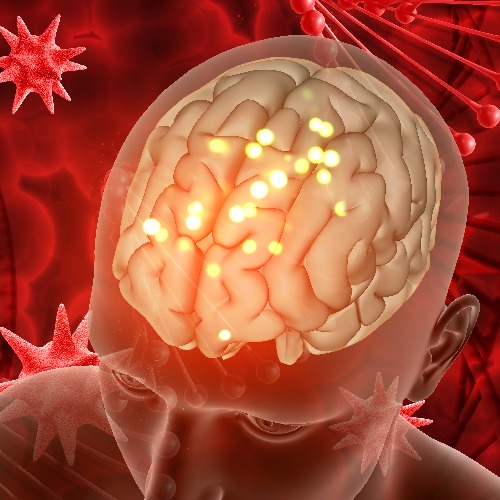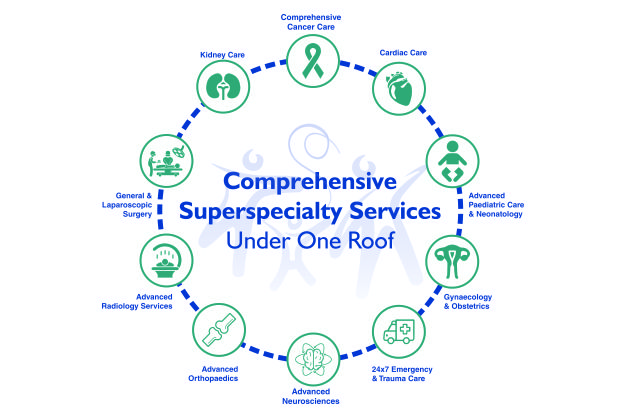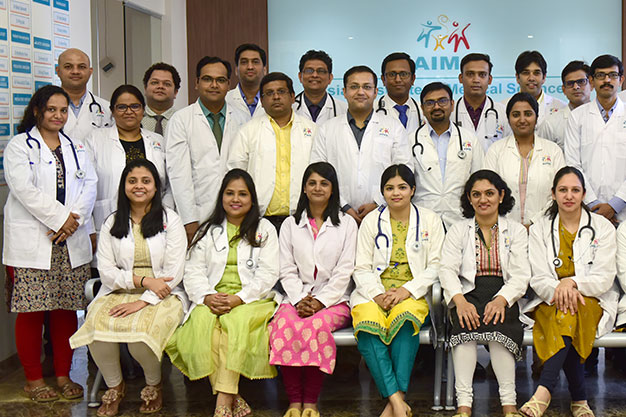
DATE : 08/12/2023
AUTHOR : AIMS Hospital
What are the symptoms of Alzheimer disease and what are the treatment options for Alzheimer’s disease?
Introduction
Alzheimer's disease is a relentless, progressive neurodegenerative condition that casts a shadow over memory, thinking, and behavior. It strikes not only the individuals who bear its weight but also their loved ones who watch the person they knew slowly slip away. This debilitating condition has intrigued researchers and baffled medical professionals for decades, but we continue to strive towards unraveling its mysteries. In this article, we will explore the causes of Alzheimer's, delve into its harrowing symptoms, and shed light on the available treatments for this challenging disease.
Causes of Alzheimer's Disease
Alzheimer's disease is a complex ailment with multiple factors contributing to its development. While a definitive cause remains elusive, researchers have identified several key factors that increase the risk of its onset:
1. Age: One of the most significant risk factors for Alzheimer's disease is aging. The likelihood of developing this condition increases as individuals get older, with the majority of cases occurring in people over the age of 65. Aging is an undeniable component in the complex web of Alzheimer's causes.
2. Genetics: Individuals with a family history of Alzheimer's disease face a higher risk of developing it themselves. Genetic factors, particularly specific gene mutations such as the APOE ε4 allele, can significantly increase susceptibility to the disease. However, it is crucial to understand that not everyone with these genetic markers will develop Alzheimer's, and conversely, some individuals without them will still develop the condition.
3. Brain Abnormalities: Alzheimer's is characterized by the presence of abnormal protein deposits in the brain. Amyloid plaques and tau tangles disrupt normal brain function, leading to cognitive decline. Researchers are actively studying these abnormalities to understand their role in the disease and develop targeted treatments.
4. Lifestyle and Environmental Factors: Certain lifestyle choices and environmental factors may contribute to the risk of Alzheimer's disease. These include a sedentary lifestyle, smoking, poor diet, and limited cognitive stimulation. Maintaining a healthy lifestyle can help reduce the risk of Alzheimer's to some extent.
Symptoms of Alzheimer's Disease
The symptoms of Alzheimer's disease can vary in severity and progression but typically follow a pattern of cognitive decline and behavioral changes. Here are some common signs and symptoms:
1. Memory Loss: One of the hallmark symptoms of Alzheimer's is memory loss, especially recent memories. Individuals may forget names, appointments, and important details of their lives.
2. Disorientation and Confusion: People with Alzheimer's often become disoriented and confused about time, place, and familiar faces. They may get lost in familiar surroundings.
3. Difficulty with Language: Communication becomes challenging as individuals struggle to find words, follow conversations, or express themselves coherently.
4. Impaired Judgement and Decision-Making: Alzheimer's can affect a person's ability to make sound judgments and decisions, leading to poor choices in daily life.
5. Mood and Personality Changes: Behavioral changes are common, with individuals experiencing mood swings, irritability, and personality alterations that can be distressing for both the affected person and their loved ones.
6. Decreased Independence: As the disease progresses, individuals may require increasing levels of assistance with daily activities such as dressing, bathing, and eating.
Treatment of Alzheimer's Disease
While there is currently no cure for Alzheimer's disease, several treatment options aim to alleviate symptoms, slow the progression of the disease, and improve the quality of life for affected individuals:
1. Medications: Several medications, such as cholinesterase inhibitors (e.g., donepezil, rivastigmine) and memantine, can help manage cognitive symptoms and slow the progression of Alzheimer's disease in some individuals.
2. Lifestyle Modifications: Adopting a healthy lifestyle that includes regular physical exercise, a balanced diet, social engagement, and mental stimulation can help improve cognitive function and overall well-being can be achieved with proper Treatment of Alzheimer’s disease.
3. Behavioral Interventions: Behavioral interventions, including cognitive-behavioral therapy and psychoeducation, can help individuals and their caregivers better cope with the challenges of Alzheimer's disease.
4. Supportive Care: Caregiver support and respite services are essential to help families and caregivers manage the demands of caring for someone with Alzheimer's disease. Support groups and resources can provide valuable guidance and emotional support.
5. Research and Clinical Trials: Ongoing research into Alzheimer's disease aims to develop new treatments and gain a deeper understanding of the condition. Participating in clinical trials may offer access to innovative therapies.
Conclusion
Alzheimer's disease is a relentless adversary, affecting not only memory, thinking, and behavior but also the lives of individuals and their loved ones. While we have made significant strides in understanding its causes, symptoms, and treatment options, there is still much work to be done. As researchers continue to unravel the complexities of Alzheimer's, it is crucial to offer support, compassion, and care to those facing this challenging journey. Together, we strive to improve the lives of those affected by Alzheimer's and work towards a future where a cure or more effective treatments can bring hope and relief to those impacted by this devastating disease.
Aims Hospital is dedicated to providing exceptional care and support to individuals affected by Alzheimer's disease. Our specialized team of medical professionals offers comprehensive diagnostic services, tailored treatment plans, and compassionate care to enhance the quality of life for patients and their families. We are committed to advancing research and treatment options for Alzheimer's disease to better serve our community. For more details, please call us at :0251- 6185000.
ABOUT US
About AIMSDirector's Message
Vision & Mission
Accreditations
Awards & Accolades
Our Network
Phone Directory
Designed by Web Creations 2022. All rights reserved.










